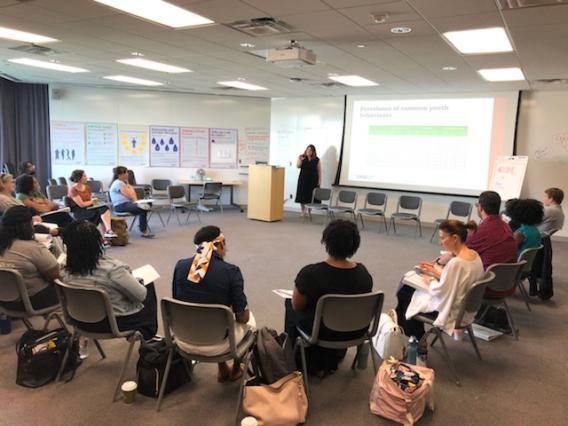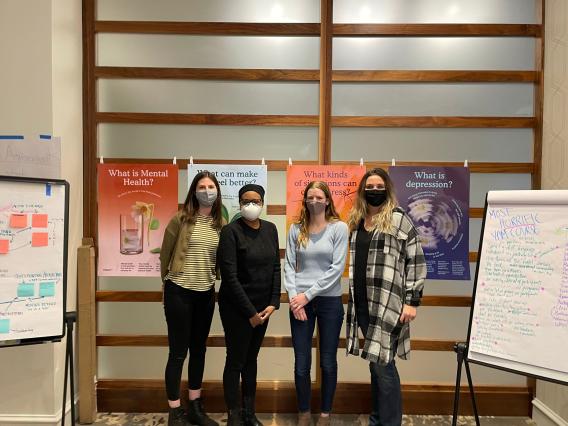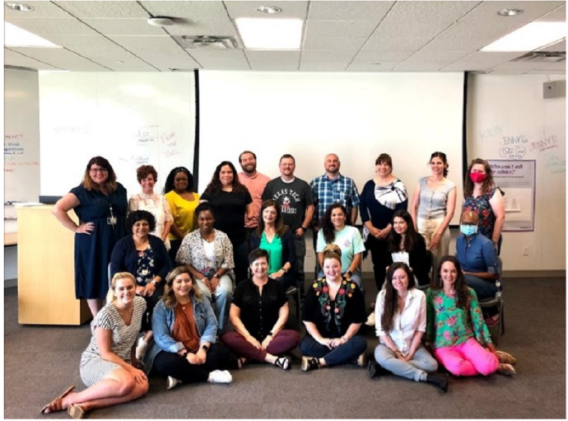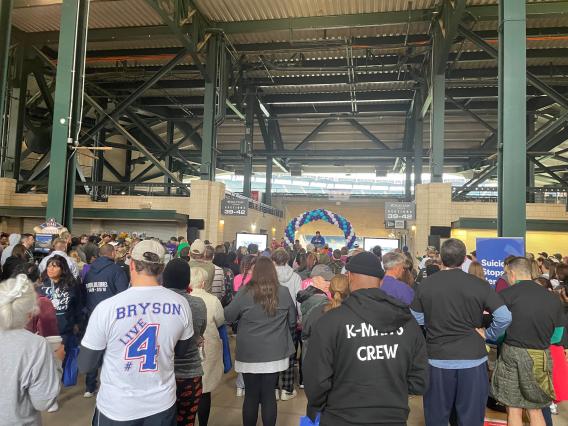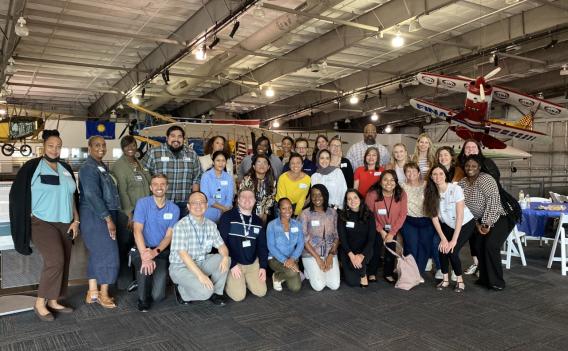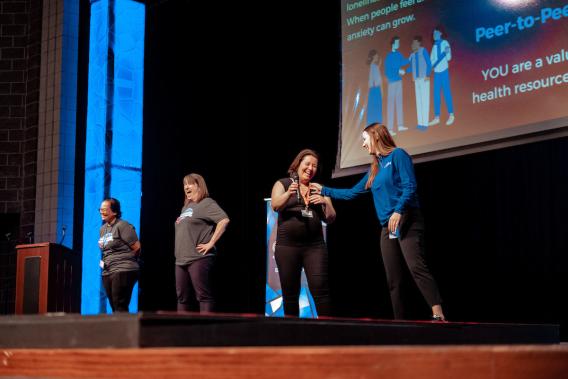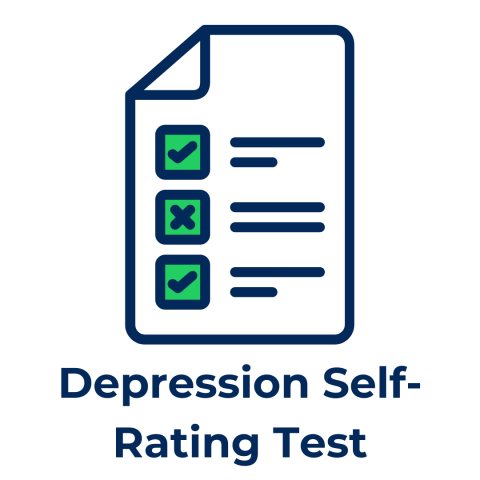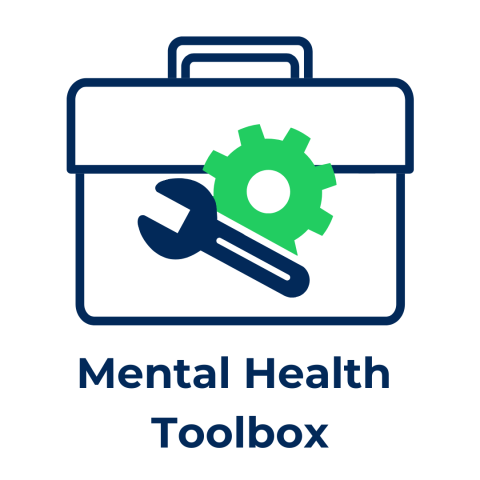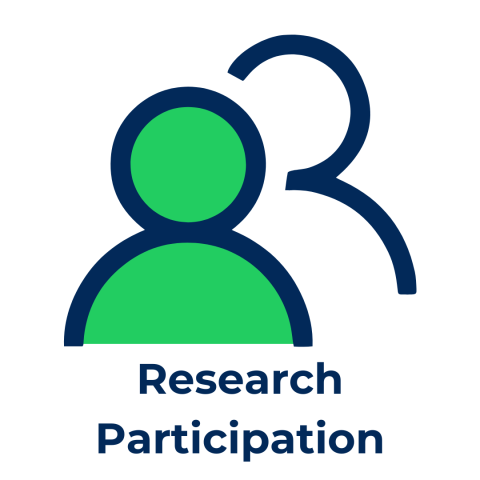Driving Change Through Partnership
Continued advancements come through tireless pursuit, and our Center's faculty and staff understand that the commitment we renew each day is built upon a foundation of scholarship and a network of like-minded organizations. By sharing our findings worldwide, we strive to improve patient care and further the research momentum of our fellow scientists. Made possible by public grants and philanthropic investments, these programs provide civic and health partners with resources and tools to better prevent, identify, and treat depression in individuals of all ages.
Evexia, the Greek word for Wellness, is a web-based screening and self-monitoring tool, which empowers individuals to engage in a periodic mental health “temperature check” and allows them to track their mental health over time the same way they might track their physical activity with a wearable device. It allows individuals to regularly complete a variety of validated self-report measures related to various mental health aspects.
Better Research. Better Care. Better Outcomes.
Existing research shows that mental illnesses are common in the United States, affecting tens of millions of people each year. Current estimates suggest that only half of people with mental illnesses receive treatment. Mental illnesses include many different conditions that vary in degree of severity, ranging from mild to moderate to severe type.
Our Statewide Initiatives
Four Strategic Pillars
A collaboration with Meadows Mental Health Policy Institute, The Cloudbreak Initiative focuses on standardizing early detection and treatment in primary care through two proven approaches: Measurement-Based Care (MBC), the routine use of repeated, validated measures to track symptoms and functional outcomes over time; and the Collaborative Care Model (CoCM), an integrated approach to the treatment of depression that involves care managers and consultant psychiatrists engaging directly within primary care settings.
These pillars are:
- Effective Clinical Systems
- Research
- Smart Purchasing
- Public Engagement
Best Care Research
As a key leader in the field of mood disorders, Dr. Madhukar Trivedi serves as the Principal Investigator of the National Institute on Drug Abuse (NIDA) sponsored Clinical Trials Network (CTN) Big South/West Node that researches novel interventions aimed at improving outcomes for substance use disorders.
Improving Access, Diagnosis, and Treatment
The CDRC is participating in a collaboration with Meadows Mental Health Policy Institute, winner of the statewide Lone Star Depression Challenge, whose purpose is to scale an innovative, proven, transformative solution that builds healthier, stronger communities throughout Texas to improve the quality of life for all Texans.
Depression Screening for Better Care
The Texas Youth Depression and Suicide Research Network (TX-YDSRN) is a research initiative of the Texas Child Mental Health Care Consortium (TCMHCC), which was created by the 86th Texas Legislature. The TCMHCC funds multi-institutional research with potential for mental health care for children and adolescents in Texas.
Mental Health Promotion, Resilience & Suicide Prevention
Since the program began in 2016, the CDRC team has reached over 20,000 youth in over 1,100 classrooms with the YAM program. Due to the program’s success, the CDRC team has transitioned to training new facilitators to reach more students and create more sustainable school-based mental health programming.
Our Programs
Mental Health Promotion & Resilience-Building
Blue Steel is a resilience-building education program designed to teach resilience skills and effective tools for supporting oneself and others during times of stress.
Developing a Biosignature for Depression
The Texas-Resilience Against Depression (T-RAD) program collects genetic, clinical, demographic, behavioral, and biological information from individuals at risk and those who have been diagnosed with depression or bipolar disorder. Through this 10-year program of 5,000 people, we hope to determine how best to treat and reduce the risk of mood disorders.
Depression Screening & Better Care
The TX-YDSRN hub is led by Dr. Madhukar Trivedi at UT Southwestern and co-led by Dr. Sarah Wakefield at Texas Tech University Health Science Center. The purpose of this research network is to improve the evaluation of and response to the increasing problem of youth depression and suicide in Texas.
Making Screening for Depression the 6th Vital Sign
VitalSign6 is an easy-to-use, comprehensive program for the identification and treatment of depression in primary care, pediatric, and specialty clinics.
The program utilizes an innovative web-based application to administer the Patient Health Questionnaire (PHQ) and other Measurement-Based Care (MBC) systematic assessments to patients. Patients complete the measures on an iPad during the triage process, thus making screening for depression the sixth vital sign after body temperature, pulse rate, respiration rate, blood pressure, and pain.
Mental Health Promotion, Resilience & Suicide Prevention
Youth Aware of Mental Health, YAM, is an interactive program for adolescents promoting increased discussion and knowledge about mental health, suicide prevention, and the development of problem-solving skills and emotional intelligence. YAM brings different learning methods together with the fundamental components of the program being as follows: five interactive sessions, role-playing, informational reading materials and posters for display in the classroom.
Focus on the Individual
An important element of translating our research into practice involves creating access and capability to track mental health and wellness for the individual (adolescent and adult) within and beyond our community.
Find out more
Focus on Systems
To better understand the areas of greatest impact, we have identified and partnered with schools, community organizations, and healthcare systems on initiatives to improve the diagnosis and treatment of mood disorders and enhance suicide prevention efforts.
Find out more
Focus on Youth
To better understand the areas of greatest impact, we have identified and partnered with schools, youth organizations, and healthcare systems on initiatives to improve the diagnosis and treatment of mood disorders and suicide prevention in youth.
Find out more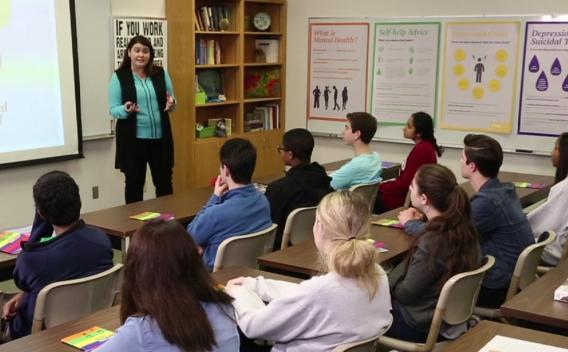
Real People. Real Research.
Be part of the great impact we're having on science and medical care across the globe.The CDRC focuses on transforming the diagnosis and treatment of depression with a particular emphasis on developing an empirical basis for improving the treatment of depression. The center has been involved in many of the pivotal studies involving the establishment of the efficacy of antidepressant treatments (medications, psychotherapy, exercise, complementary treatments, devices, etc.), examining next steps in treatment-resistant depression to develop algorithms and guidelines, and developing and validating biomarkers to reach the goal of precision medicine for mood disorders.
